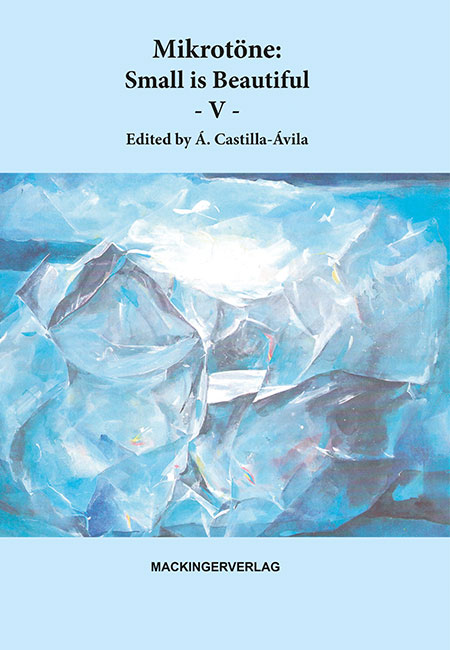Zum Inhalt:
Das Buch enthält 17 Beiträge zum Internationalen Symposium „Mikrotöne: Small is Beautiful“ an der Universität Mozarteum in Salzburg, 30.6. bis. 4.7.2023.
Inhaltsverzeichnis:
Agustín Castilla-Ávila: Prologue
Navid Bargrizan: Just Intonation, Dastgāh-Music, and Scordatura in Kupferteich
Katarzyna Bartos: Between freedom and structure in Iluzje by Adam Porębski
Jonatan Carrasco Hernández: The use of Pure Data for the automatic creation of microtonal scales used in the fixed media work Tenoni
Jim Dalton: Privileging Interval over Scale: Using Free-Style Just Intonation to Achieve Scale-less Bohlen-Pierce
Katarzyna Daszkiewicz: Does microtonal mean apocalyptic? Paweł Mykietyn’s Ładnienie for baritone, microtonal harpsichord and string quartet
Karin De Fleyt: Temporality layers in Xi for flute solo by Karlheinz Stockhausen
Vytautas Germanavičius : In Search of Archaic Code as a Symbol of the Interval Structure in Folk Music Scales
Nikolaus Gerszewski: The Microchromatic Perspective
Martin Gut: 60EDO in Günther Rabl´s tape composition Landschaft mit Pianist
Franck Jedrzejewski: Petr Chernobrivets and the 20-Tone Universe
Gerhard Klösch: The Sliding Keyboard, a new pure tonal instrument; part 2: Applications
Klaus Lang, Martin Ritter, Alyssa Aska, Pablo Mariña: Imagination as the instrument of the composer: developing the Frescobaldi enharmonic keyboard enhancement
John Schneider: The global Guitar Music of Lou Harrrison
Ulf-Diether Soyka: Queer Pitch?
Siegfried Steinkogler: Ludus Microtonalis – a new Method to learn the Basics of microtonal Music
Luke Villavicencio: Simplifying the Understanding and Composition of Microtones with Microtonal Planes
Richard Whalley : Microtones and Landscape: Introducing Lud´s Chuch, written for Stephen Altoft´s 19-div Trumpet

